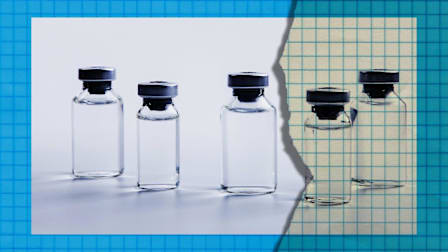Facebook Will Remove COVID-19 Vaccine Misinformation
The platform will attempt to restrict 'false claims' about vaccines

Facebook announced it would remove posts that contain “misinformation” about COVID-19 vaccines, joining other social media platforms in trying to slow the spread of potentially harmful content ranging from inaccurate medical advice to conspiracy theories.
In a blog post on the company’s website, Kang-Xing Jin, Facebook’s head of health, explained that in the coming weeks the company would remove “false claims” that have been “debunked by public health experts.”
Facebook didn’t identify those experts by name, although a New York Times article cited the Centers for Disease Control and Prevention, the World Health Organization, and the Food and Drug Administration.
Some Consumers Wary of Vaccines
Facebook’s new policy comes at a time when Americans seem wary about a potential COVID-19 vaccine. Survey research by Consumer Reports suggests that consumers have doubts about a coronavirus vaccine—more so than about vaccines in general—and their level of concern seems to be on the rise.
In our latest nationally representative survey of 2,670 U.S. adults, conducted from Oct. 8 to Oct. 26, only 29 percent of Americans told CR they were “very likely” to get a COVID-19 vaccine. That’s down from 42 percent of Americans in July.
Twelve percent told CR that they would be comfortable getting vaccinated immediately, 21 percent said in less than three months, 26 percent said in three months to a year, 22 percent said after a year, and 18 percent said never.
The survey reveals significant skepticism among the groups hardest hit by the pandemic. Seventy-nine percent of Black survey respondents said they were “not too confident” or “not confident at all” that a COVID-19 vaccine would be safe, compared with 55 percent of all adults.
And in the most recent survey, a larger percentage of Black adults—36 percent, up from 31 percent in our September survey—said they were “not at all likely” to get a vaccine.
The survey was taken before the presidential election, and also before a series of announcements from companies including Moderna and Pfizer about the efficacy of their vaccine in clinical trials.

